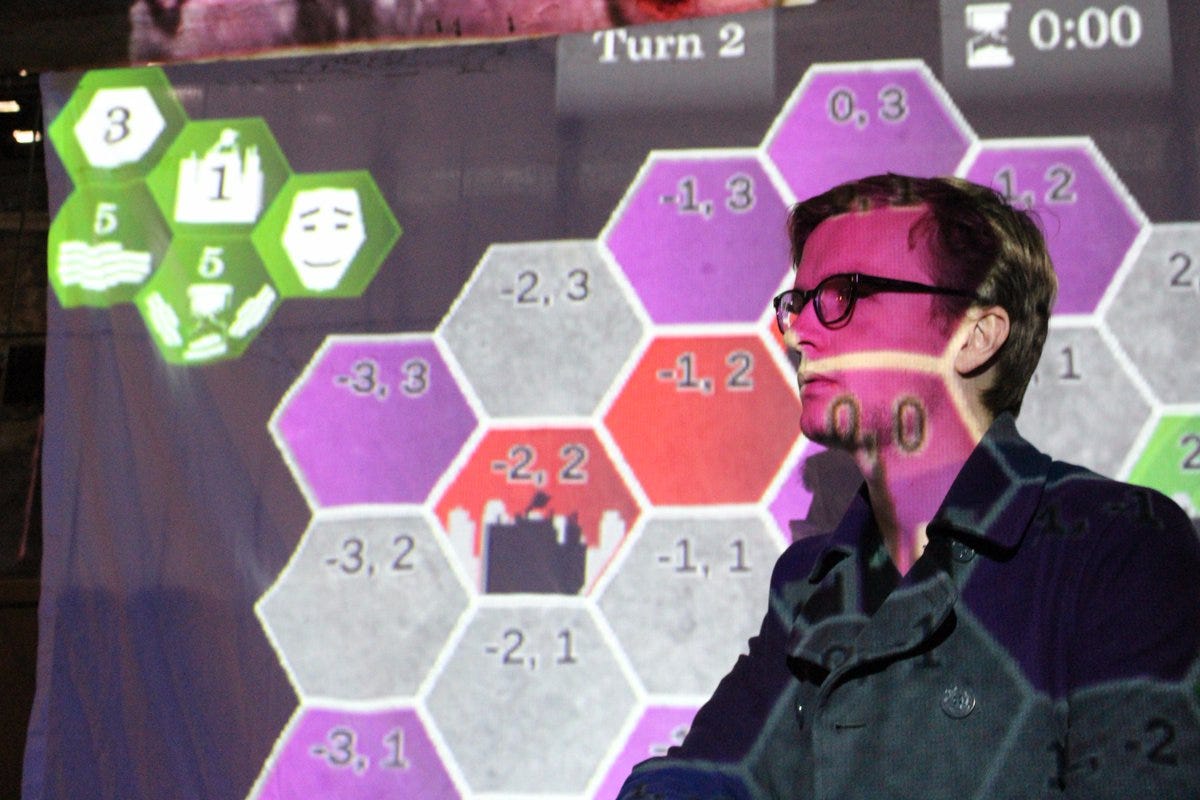
London has been overtaken and a new order must be established — but who will reign supreme?
The Vault Festival is overrun on a relatively-warm Saturday night in February, with dozens of smokers crowding the sidewalk and guarding the gates to the yawning caverns beneath Waterloo Station which harbor dozens of productions in London’s annual performance festival. The space constantly emits the vibe of a dystopian end-of-the-world party and lends a faint patina of restlessness to visitors who come for a performance. Usually when I attend a show at the Vaults I get a sense that the show is secondary to the food, liquor, and live music that yield a major share of the festival profits; I’d had no idea that there were performance spaces that were separated from the central venue. I’ve been to several shows at the festival but when my companion and I are led away from the main entrance to the festival space I know that this production is going to be something special.
Revolution’s press release describes itself as a true escapist adventure through a series of audience-driven decisions. The initial steps beyond the entrance immediately enchant us: we are encapsulated in a sprawling warren of stone chambers lit by seductive accent lighting in carnival tones. Tattered city maps and political faction paraphernalia cover the walls of several grottoes which are furnished with haphazardly matched tables and chairs; I sneak a quick read of some pieces of set dressing and it’s fairly detailed with newspaper clippings and manifestos of groups with names like Freedom First and Gaia’s Dawn. Attendees who hold affection for expansive and explorable sets in immersive theatre will be comforted and charmed by this atmosphere, but won’t have long to explore before being thrown into one of the most fun and exciting first-person group-driven gaming experiences I’ve had in ages.
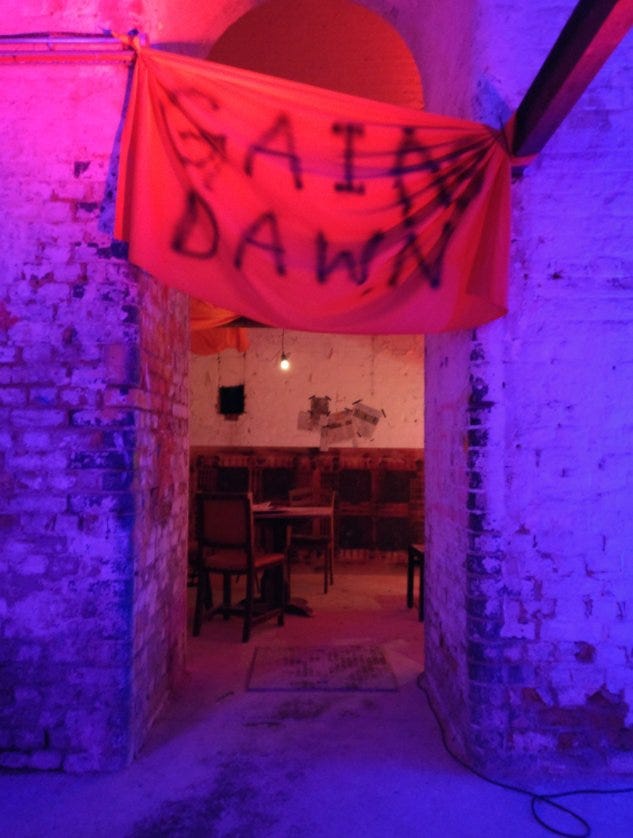
The show delivers exactly what it advertises: an exciting interactive political uprising with direct personal agency and shades of strategy tabletop games. Revolution isn’t a show for voyeurs — the narrative is intrinsically driven by audience members being willing to take initiative, plot team tactics, and engage in subterfuge. This is not a back-room bridge party presided over by dusty arbiters: the narrators are lively and emotionally engaged, delivering first-person commentary and advice as you and your team rush to react to the next objective.
We lost two audience members on the way in, presumably because they saw that they’d be expected to actively contribute, bringing our total down to six. We were initially split into two groups of three but agreed to divide into three teams of two in the interests of game dynamics — three parties meant more opportunity for groups to team up on multiple fronts, or to strategize against in order to conquer. (It’s important to note here that it’s likely that you’ll be separated from the party that you arrived with, as you’re asked a question upon entry that quickly filters attendees into factions.)
Get Shelley Snyder’s stories in your inbox
Join Medium for free to get updates from this writer.
SubscribeSubscribe
With only two audience members per political party, each player took on a much bigger share of the responsibility to interact. A larger group might have yielded a more dynamic storyline; with more delegation of tasks, the teams might be able to accomplish more of the objectives. (I was informed that the showing prior to ours was attended by twenty-seven audience members.) On a team of only two people, it fell to one of us to make the top-level strategy decisions while the other person was engaged with completing objectives with very little communal decisions made in the short time limit during rounds. We weren’t able to achieve much, but we didn’t seem to notice our failings as we ran from group to group delivering messages, negotiating agreements, and starting scandals.
Contrastingly, a larger group would also have allowed more passive audience members to withdraw to the background and observe as more ambitious attendees pursued the objectives that advanced the narrative. If you’re a more traditional theatre-goer who prefers not to have to contribute in order for the story to progress, it’s best to pray for a large audience count and allow others to take the initiative. But if you’re the type to manipulate storylines and affect the outcome of the performance you’ll have plenty of opportunities to pursue your passion in Revolution.
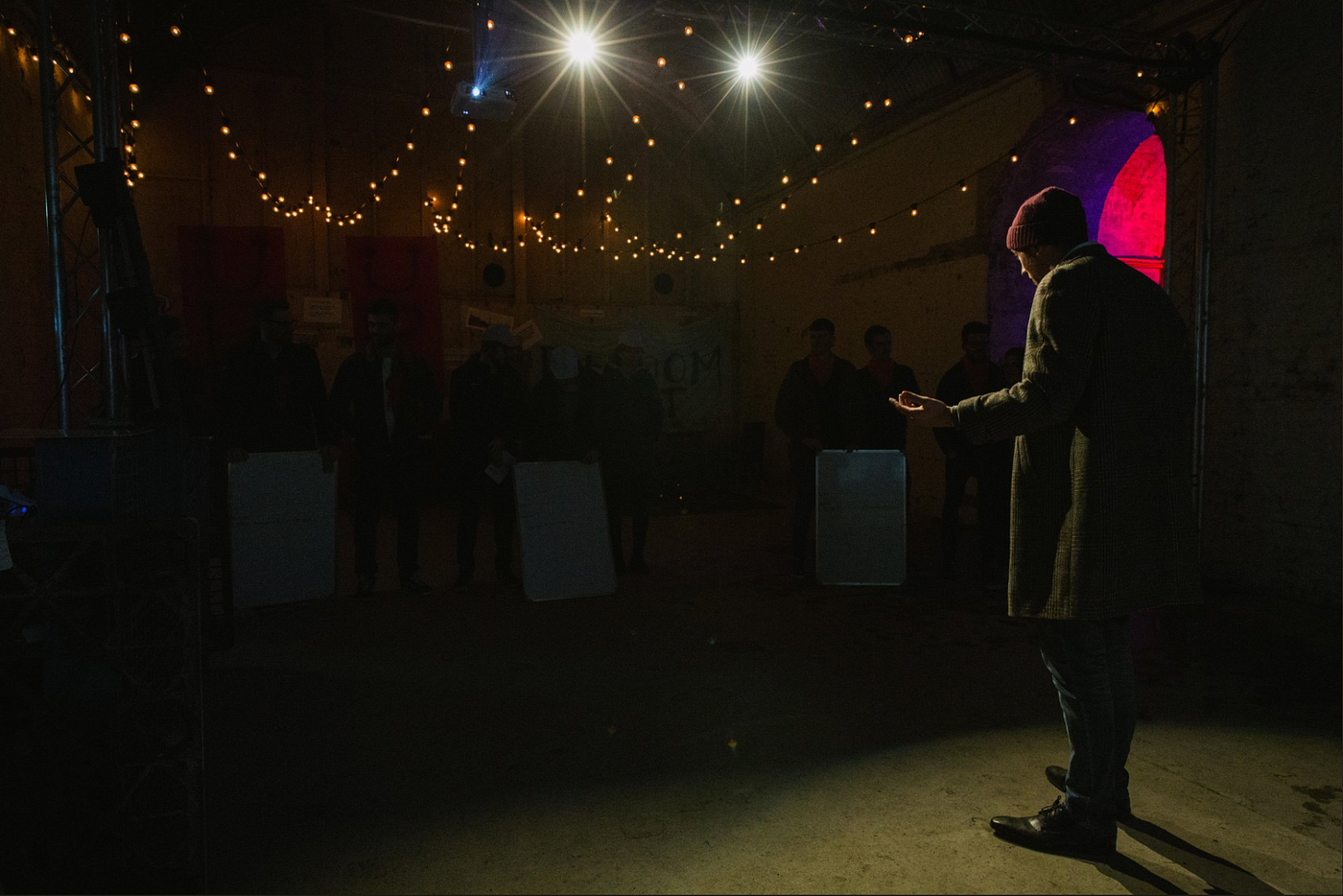
In addition to a more regulated audience size, Revolution merits a bigger set budget. The sound design is brilliant, layering an undercurrent of frenzy and desperation during each round of gameplay which echoes through the perfectly suited space which they’ve taken full ownership of. Shows at the Vault Festival must face the reality of being forced to share spaces with other performances, making it understandable that Revolution’s set can only expand to fill the confines of its load-in and strike windows. Their designers, however, are clearly keen and able to build a subterranean labyrinth for political uprisers to run rampant within.
Gamers and immersive theatre fans alike can consider Revolution a solid choice in entertainment. Visitors will have a different experience each time due to the nature of the audience-driven gameplay and the enjoyment that you get out of the experience is very dependant on the effort you put in. While it’s possible for one or more teams to “win” your performance, winning has no effect on the ending though it does indicate which teams worked better together. The future will tell if the show will continue past this year’s festival, but I firmly believe that if given a looser rein and a bump in budget we could watch Revolution construct a show approaching Punchdrunk levels of immersion but with personal agency that transforms the narrative into the product of its audience rather than that of its creators.
Revolution continues at the Vault Festival through March 18; tickets are £19.50.
No Proscenium is a labor of love made possible by our generous backers like you: join them on Patreon today or the tip the author of this article directly on Gumroad:
In addition to the No Proscenium web site, our podcast, and our newsletters, you can find NoPro on Twitter, Facebook, YouTube, Instagram, in our online community Everything Immersive, and in our Slack forum.


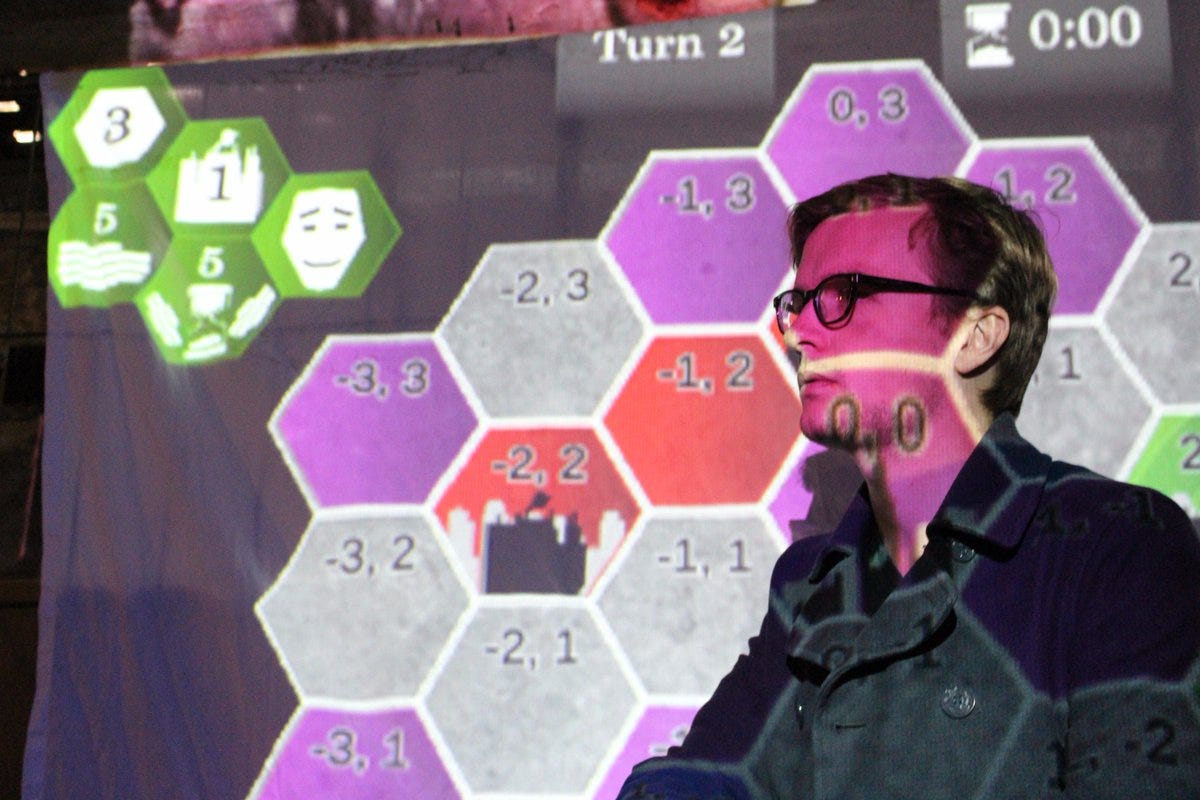





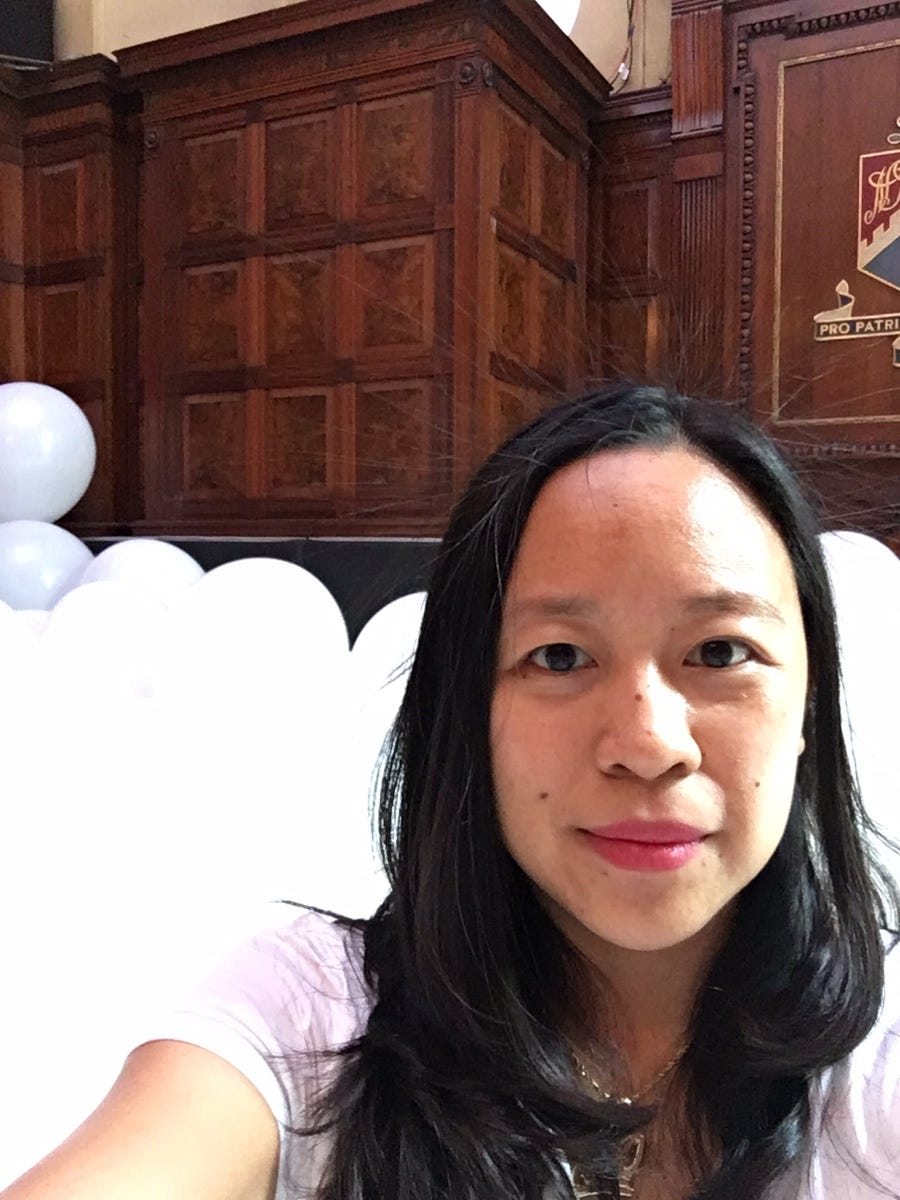
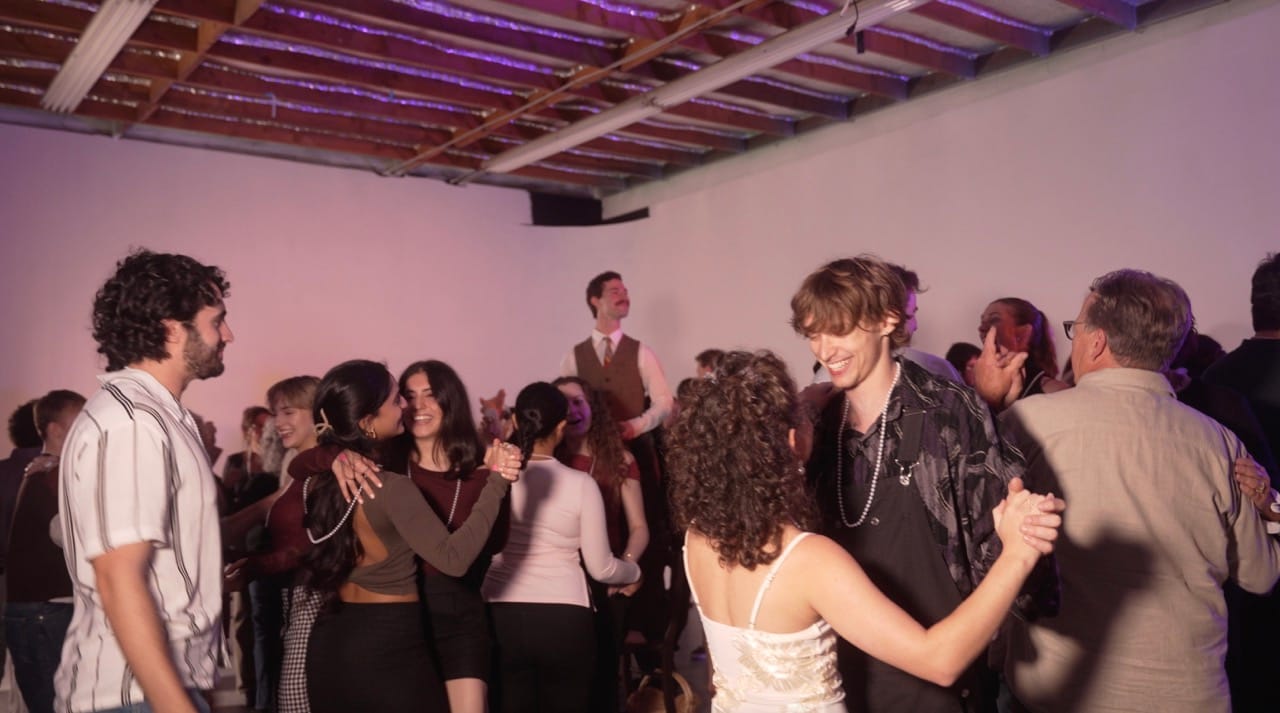
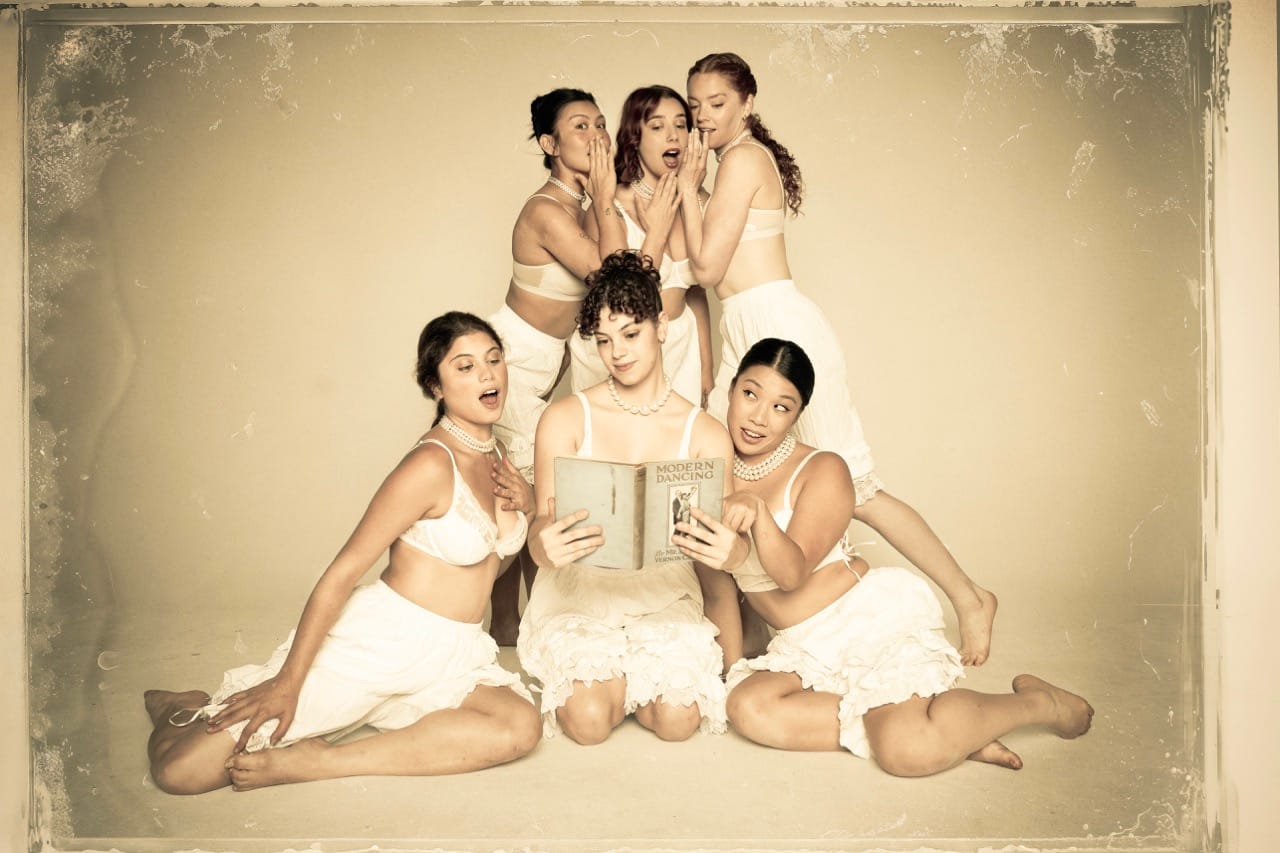
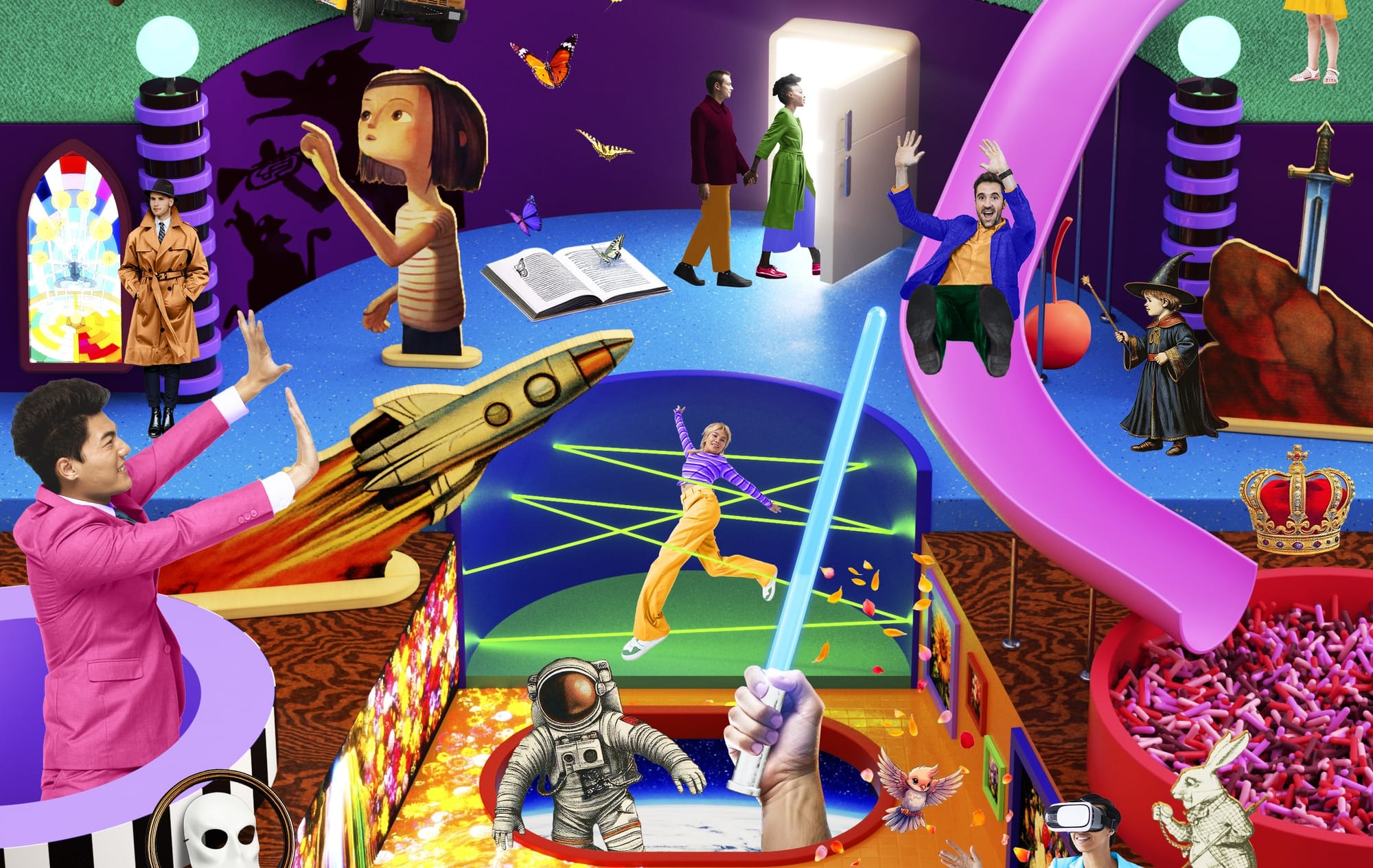
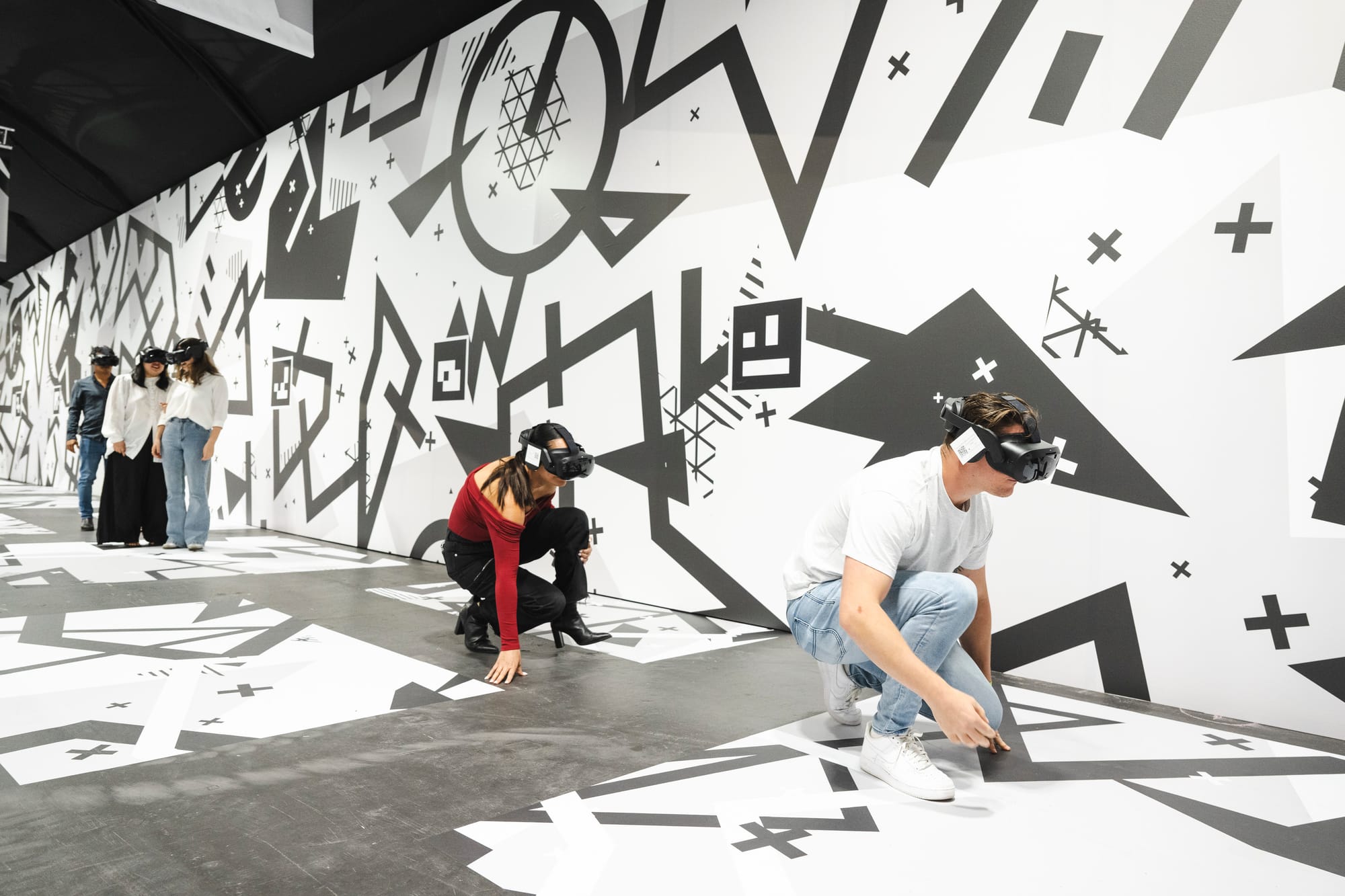
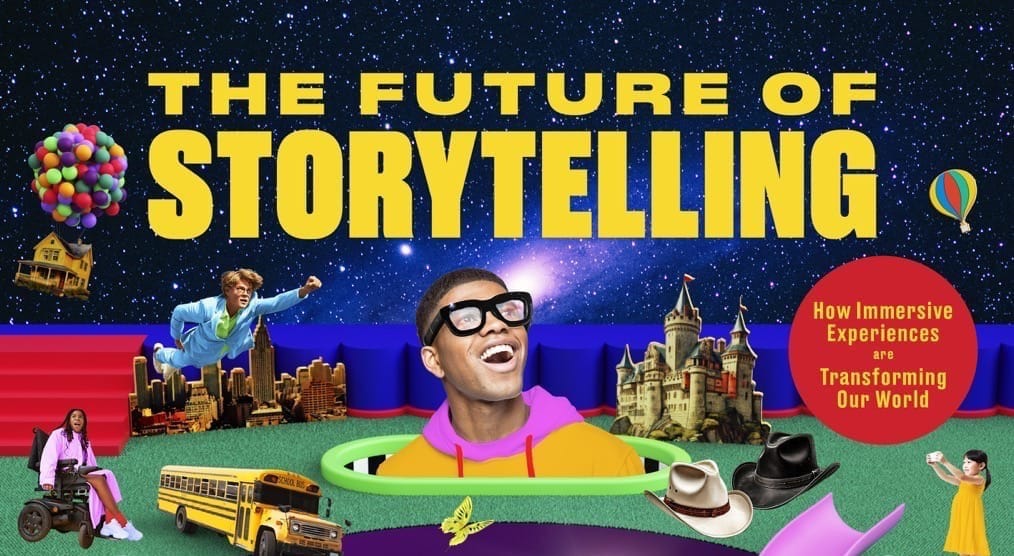



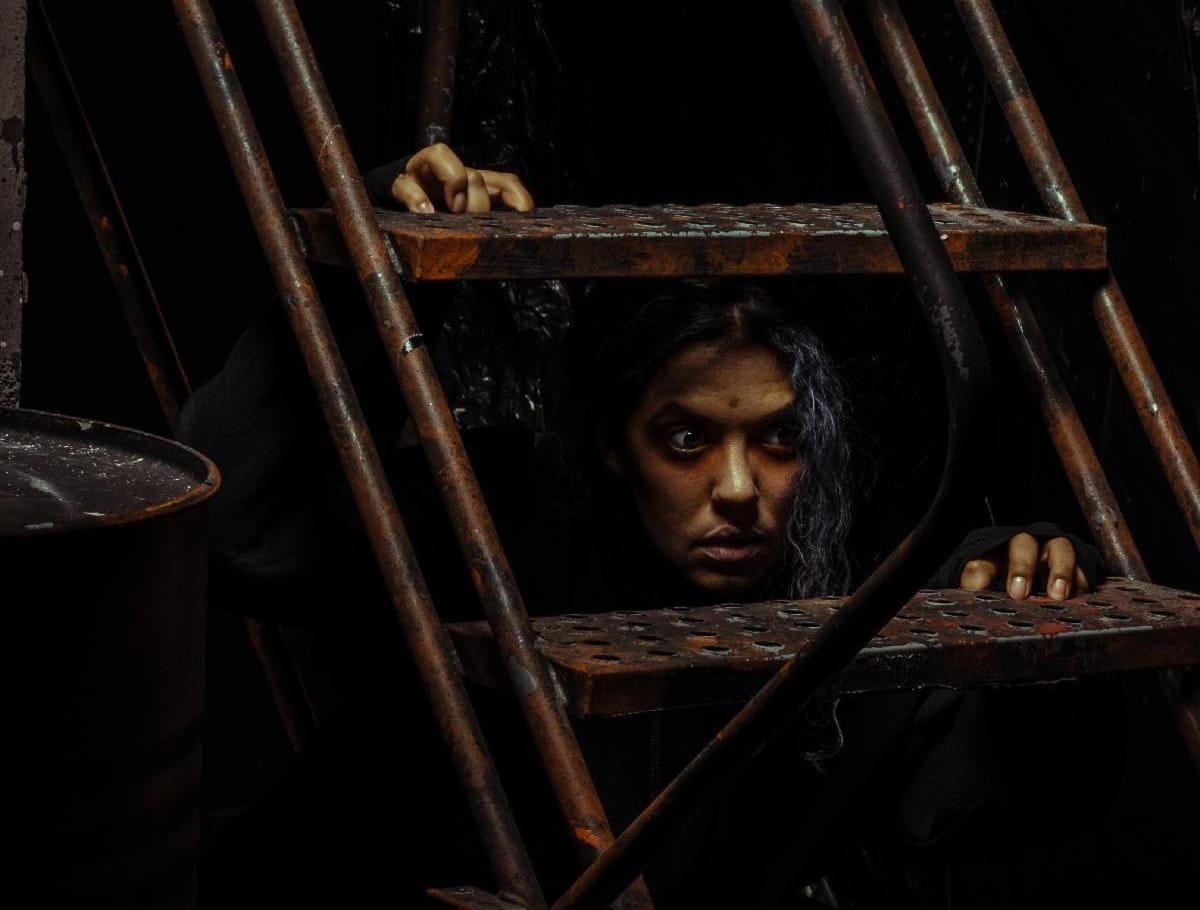
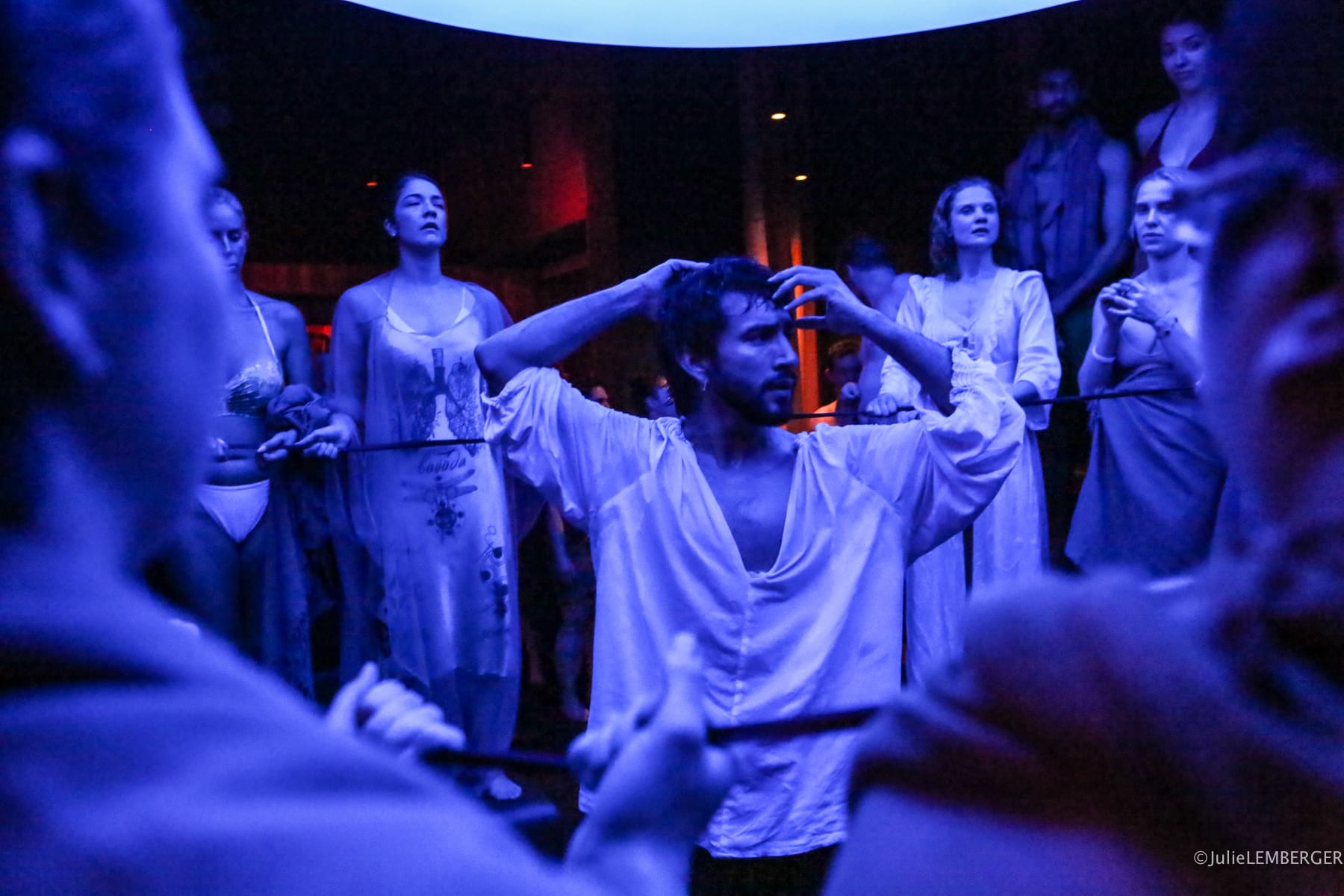
Discussion